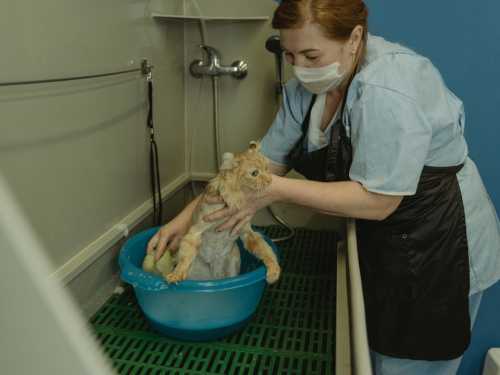
Many cat owners notice that their furry pets make funny sounds while sleeping, Ukr.Media reports.
Sometimes it's a quiet snore, and sometimes it's a real snoring that can rival a human's.
But is snoring in cats normal, or is it a reason to see a veterinarian? Let's understand.
Causes of cat snoring
Like humans, snoring in cats is caused by the vibration of soft tissues in the airways. This can occur for a variety of reasons.
Anatomical features
Brachycephalic cat breeds, such as Persians and Exotic Shorthairs, have short muzzles and narrow nasal passages, which predispose them to snoring.
Extra pounds are deposited not only on the sides, but also in the neck area, squeezing the airways and making it difficult for air to pass through.
Age
With age, the muscles of the larynx and soft palate lose tone, which can also cause snoring.
Sleeping position
Sometimes a cat may snore if it sleeps in an awkward position, such as on its back, when its tongue falls down and partially blocks the airway.
Allergy
An allergic reaction can cause swelling of the mucous membranes of the nose and throat, leading to difficulty breathing and snoring.
Infections
Viral or bacterial respiratory infections, such as rhinitis or sinusitis, can cause snoring.
Foreign objects
Sometimes foreign bodies, such as blades of grass or small toys, can get lodged in a cat's nasal passages, causing difficulty breathing and snoring.
Neoplasm
In rare cases, snoring may be caused by polyps or tumors in the nasopharynx.
When to worry
In most cases, snoring in cats is not a serious health threat. However, if you notice that the snoring has become louder, more frequent, or is accompanied by other symptoms such as coughing, sneezing, nasal discharge, or difficulty breathing, you should consult your veterinarian.
It is also worth paying attention to the general condition of the cat. If she is lethargic, refuses to eat, or has a change in behavior, this may indicate the presence of a serious illness that requires treatment.
What can the owner do?
If your cat snores but otherwise feels fine, you can try the following recommendations:
- Provide a comfortable sleeping environment. Make sure your cat has a comfortable place to sleep where they won't be disturbed.
- Monitor your pet's weight. Being overweight is one of the main causes of snoring, so it's important to provide your cat with a balanced diet and sufficient physical activity.
- Use a humidifier. Dry air can irritate the mucous membranes of the respiratory tract, so a humidifier can help reduce snoring.
- Visit your veterinarian regularly. Preventive check-ups will help detect diseases at an early stage and prevent the development of complications.
Remember that your pet's health is in your hands. Be attentive to his condition and do not ignore alarming symptoms.





